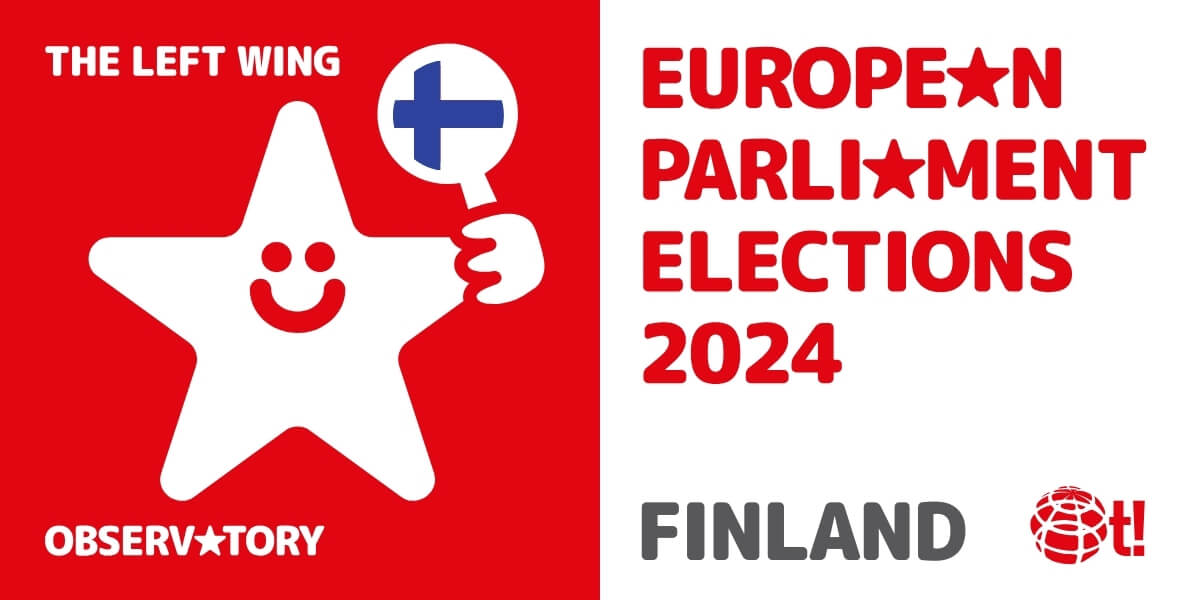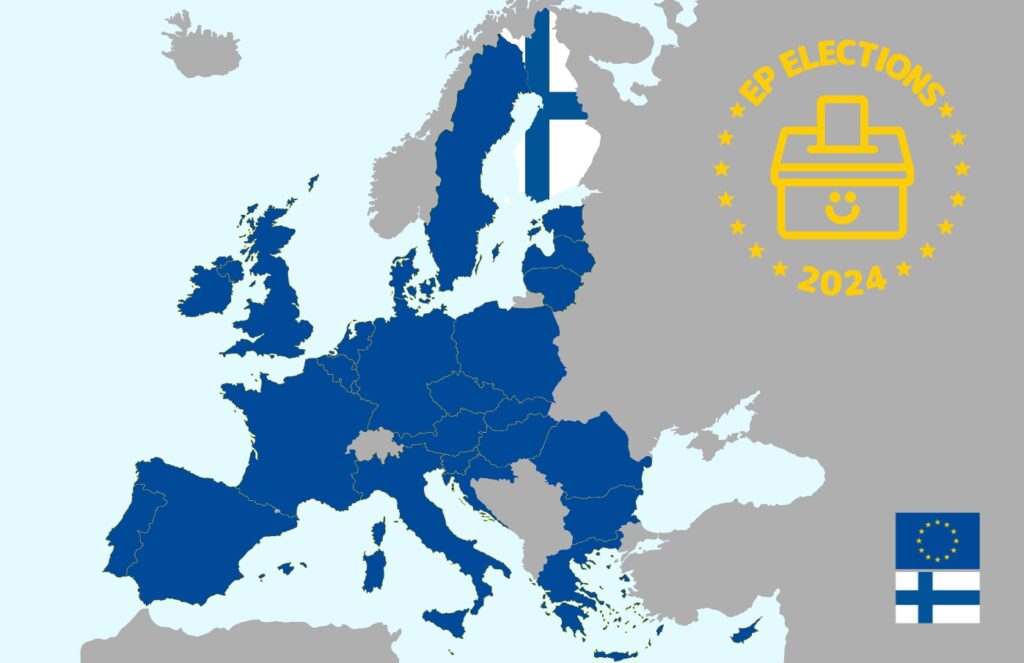
Finland’s right-wing government, led by the National Coalition Party and the populist Finns Party since June 2023, is facing declining support and internal disputes. The coalition, which also includes the Swedish People’s Party and the Christian Democrats, has pushed austerity measures and anti-immigrant sentiments and clashed with trade unions, leading to strikes. Upcoming European elections could shift the balance of power.
Finland has been led by a right-wing government since June 2023, following the victory of conservatives and right-wing populists. This government is made of the mainstream right-wing National Coalition Party, the extreme-right and populist Finns Party and two smaller parties, the Swedish People’s Party (which represents the Swedish-speaking minority), and the religious right-wing Christian Democratic Party. With the exception of the Christian Democrats, each party was necessary in order to form a majority. The requirement for a majority is remarkably low in Finland—only 109 of 200 MPs.
In opinion polls, support for the government has already fallen below 50%. The Swedish People’s Party, in particular, has struggled with internal problems relating to its participation in government. The government has suffered from racism scandals which led to the resignation of one minister after only two weeks. The programme is hard-line right-wing: promoting austerity policies, inciting negative sentiments towards asylum seekers and migrants in general, and pursuing a confrontational line against trade unions. One of the aims of the government is to change the traditionally strong position of trade unions in Finland by unilateral new legislation. This has led to political strikes against the government. Just recently, dockworkers went on strike, bringing a large part of foreign trade to a halt before the strike was suspended after four weeks by the trade unions. Traditionally, labour policy issues have been negotiated in co-operation with trade unions and industrialist-employer organisations.
In April 2024 the government announced additional budget adjustments of 3 billion euros. These include raising the general added value tax from 24% to 25,5%, the second highest in the EU, and making cuts to social security and subsidies for various cultural, educational, and social service organisations. To give one illustrative example, the government has decided to cut support for peace organisations to zero.
The leading opposition party is the Social Democrats, which has improved its popularity but not significantly above the prime minister’s party. Social Democrats and the Finns party have been doing worse than expected in European elections because of low turnout among their supporters.
So far, there has been only one opinion poll focusing on the European elections. Turnout in European elections is usually lower than national elections, a phenomenon which has tended to negatively affect the Social Democrats and the Finns Party while benefiting the Coalition Party, the Greens, and the Swedish People’s Party.

All the parties represented in the parliament nominated a full list (except the Christian Democrats and “Movement Now,” who formed an electoral alliance) and at least four parties that are not represented in the parliament also nominated candidates. Finland will get one new MEP seat and will elect 15 MEPs. In practice, a vote share of approximately 5% will be needed to elect one MEP. It therefore seems likely that the Coalition Party will get four MEPs (+1), Social Democrats will likely increase to three (+1), the Finns Party will most likely remain in two as well as the Centre Party. The greens received three seats in 2019 but the current opinion poll figures would mean the loss of one seat (-1). It is certain that Left Alliance, Finland’s left-wing party that holds observer status with the Party of the European Left, will get one MEP, but it is quite possible that it could gain two seats. There is also a possibility that Christian Democrats with “Movement Now” might together get over 5% of votes and one seat. The Swedish People’s Party has received one MEP in every election. This time, it may lose its seat, although higher electoral activity among Swedish-speaking voters may save them in the end.
Turnout in Finnish EU elections has been low, around 40% both in 2014 and 2019, but according to opinion polls this election could be different. In one opinion poll, 55% of voters reported that they will certainly vote. This figure has usually been close to the final turnout.
Left Alliance has a rather prominent list of candidates including the current and out-going party chairperson Li Andersson. He is a former minister of education who garnered 47,599 votes in the 2014 European elections, more than some of the elected MEPs, although Merja Kyllönen received even more votes and was elected as the only MEP of Left Alliance. According to a recent poll, Li Andersson was rated as the most competent chairperson of a party, with 28% rating her as the most competent followed by the prime minister and Coalition Party leader Petteri Orpo, received a mere 11%. Another prominent candidate is Merja Kyllönen, who was a MEP 2014-2019, as well as Jussi Saramo, MP and former minister. Silvia Modig, who became MEP in 2019, will resign her seat.
The Communist Party, which got 0.2% of votes in 2019, also presented a list of 20 candidates. Yrjö Hakanen, who got almost one third of CP votes in 2019, is not a candidate this round.
Among the candidates of the populist right a current MEP—Teuvo Hakkarainen—was not accepted to the Finns Party list, so he found a place as a candidate of the small nationalist Freedom Alliance Party, which will likely not get any MEPs but may take votes away from the Finns party.
The campaign has gotten off to a slow start, and most parties only published their electoral programmes at the end of April. Left Alliance was among the first to publish its programme, titled “A Common Future – Europe for All.” The basic topics in the Left Alliance programme are peace and human rights, support for the environment and fair climate actions, a fair economy and the future of young people. According to a recent study examining the issues on which voters expect EU candidates to make statements, Left Alliance voters expect a statement on foreign and security policy (46%), environmental protection (39%), circular economy and green transition (30%), strengthening of democracy (29%) and social policy (29%). The same themes are also often common among Green voters.
The least interesting issues for Left Alliance voters are public debt (12%), trade policy and international trade (12%), border security and internal security (18%) although among voters on the whole these are very popular topics. On employment as well, Left Alliance voters are less interested than voters in general. In relation to European debt across the EU as many as 56% of Left Alliance voters have at least a somewhat positive opinion (highest share among the main parties). Left Alliance’s voters are slightly less willing to support military assistance (50% of LA voters mention it as one three most important ways to support Ukraine), and slightly more are willing to send humanitarian assistance (60%) and to give economic support (48%). On the other hand, Left Alliance voters would like to send soldiers to Ukraine at the same rate as the rest of the population—16% of LA voters mention this as one of their three most important issues.
The likely future MEP Li Andersson mentioned in an interview that she believes it is necessary to renew the Left group in the European Parliament, ensuring that all members of the group be committed to certain principles related to human rights, equality and certain issues on foreign and security policy.
The Finnish Communist Party published its EU election programme with the title “Protest the war, vote for peace” and offers a quite anti-EU programme, proposing, among other things, to leave EU. On the other hand, the programme calls for the EU to promote issues such as leaving NATO and becoming a pioneer in environmental issues. The programme also suggests that “The European Central Bank should be subjected to democratic control but without federalist development with supranational budget.”
Cover photo: Willypd via Depositphotos.



